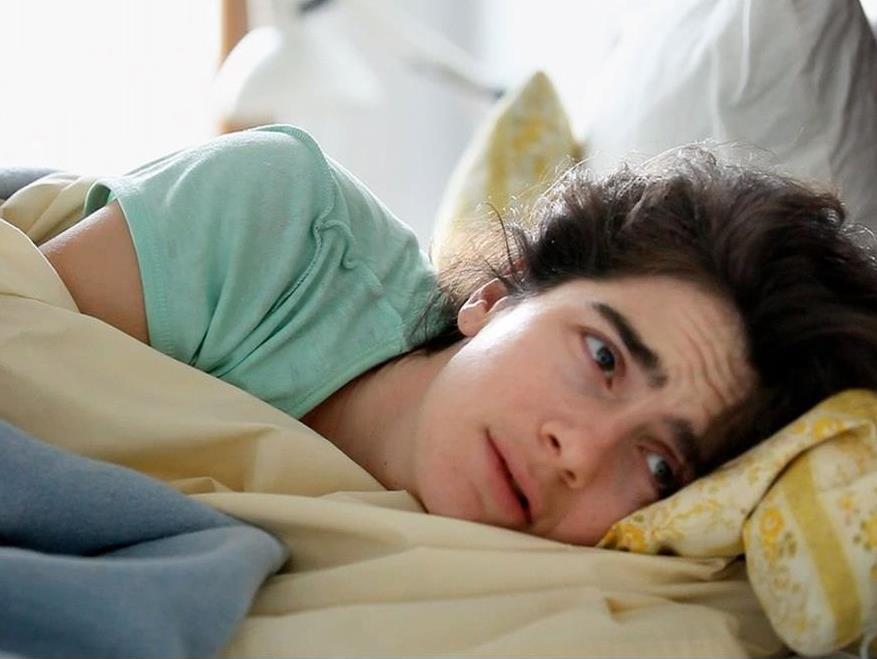Image: supplied
A young couple tour a vacant apartment, then decide to call it their own. Item by item, their spacious surroundings bloom with unpacked signs of their new life and growing family, making the place feel like home. If something doesn’t seem quite right, it is ignored; however trouble left unheeded only spreads and gnaws, then overwhelms and consumes. Soon, a mother-to-be is spending the bulk of her days alone and anxious, fretting over concerning history, potential conspiracies, and strange neighbours.
Once, author Ira Levin and then filmmaker Roman Polanski told this eerie tale as horror classic Rosemary’s Baby; now, writer/director Stewart Thorndike offers another interpretation in her debut feature. From the opening exterior shot of the Brooklyn brownstone that infects every frame that follows with foreboding, to the festering score filtered over ambient noise that evokes ill tidings for the movie’s concise 65-minute duration, the aesthetic parallels between the two are as pronounced as the narrative similarities. Thankfully, in an effort that is part homage, part subversion, Lyle proves a thrilling and gripping updating both familiar and distinctive.
In that same vein, it is fitting that the film’s title refers to the first-born daughter (Eleanor Hopkins) of Leah (Gaby Hoffman, TV’s Transparent) and June (Ingrid Jungermann, See You Next Tuesday). The toddler potters around as the pregnant Leah sets up house, and record producer June chases – and achieves – fame and money at work, until tragedy strikes. More of a catalyst for darker things to come than a character, Lyle gives fuel to Leah’s mounting worries. Others dismiss her behaviour as an excessive manifestation of grief and guilt, but Leah’s broken bond with Lyle sparks her protective maternal instincts, her primal drive to survive, and an existential contemplation about the role of a wife and mother.
Again mirroring its inspiration, the feature also circles around other figures in the immediate vicinity. The older, eccentric, baby-obsessed building manager, Karen (Rebecca Street, Orange Is the New Black), is only too eager to assist Leah in her time of need. Upstairs neighbour and model, Taylor (Kim Allen, Army Wives), offers an open but wary ear. Yet, Thorndike remains careful in avoiding all the obvious twists and turns these interlopers could signify, as well as staying committed to maintaining suspense in her skilful genre exercise. She peppers Lyle with as many nods to its predecessor as clever red herrings, as Leah follows her suspicions while everyone else questions her sanity.
That the audience doesn’t share the same doubts stems from the film’s intimacy, as aided by the economical and efficient use of space. Conjuring claustrophobia in an expansive environment is a difficult task ably conquered by cinematographer Grant Greenberg (F to 7th) and production designer Amy Williams (Last Weekend), first creeping through Leah’s confinement within the apartment, then seeping into her mindset. Within Williams’ white walls, Greenberg shoots the film with an eye to furthering the sense of paranoia, as well as the underlying mystery. Fading in and out in focus, the most pivotal scene is played out via Skype, the details unseen in the sparse background but the impact still chilling.
As recently seen in Girls and Crystal Fairy & the Magical Cactus, Hoffman has become known for externalised displays of late; however her expression of suppressed, stewed-over fears is not only convincing but compelling, as is the range demonstrated in Leah’s evolution from dutiful housewife to determined fighter. Only the film’s brevity threatens her pivotal central portrayal, both a gift in stripping the story down to its essential emotional elements, but also a curse in condensing the intoxicating unease and lingering dread of the performance and mood.
Rating: 4 stars out of 5
Lyle
Director: Stewart Thorndike
US, 2014, 65 mins
Brisbane Queer Film Festival
February 6 – 15
Mardi Gras Film Festival
February 19 – March 5
Actors:
Director:
Format:
Country:
Release:





